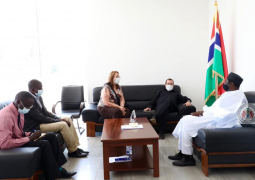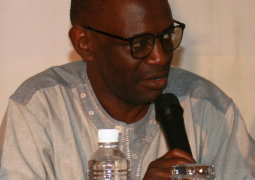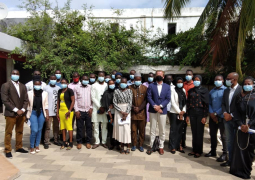
This recognition was revealed yesterday by Irving Vidal, Geneva Center for Security Sector Governance’s (DCAF), the deputy head of office and senior border management and national security adviser in Banjul.
Speaking at the commencement of a three-day capacity building for the members of the National Assembly Standing Committee on Defence and Security on the review and analysis of security institutions reports and budget review and analysis held at the Metzy Residence Hotel in Kotu, Mr. Irving Vidal, outlined that the current constitution does not stipulate international law as a source of domestic law, adding that UN Security Council resolutions are binding to all state parties, regardless of their legal systems.
He said that the DCAF seeks to support the security sector that is dedicated and fully committed to
improving human and state security by strengthening democratic control, rule of law, and respect for human rights.
The DCAF deputy head further stated that DCAF is currently implementing numerous significant projects in The Gambia’s Security Sector Reform process within their strategic framework such as supporting the Gambia Police Force, an EU funded project as well the Gambia Immigration Department – which is a Swiss Government Funded project.
On behalf of DCAF, he expressed gratitude to the Gambian government for their notable efforts to implement the Security Sector Reform, while applauding the European Union for funding the capacity-building activities in support of the SSR agenda of The Gambia government.
Declaring the event open, the deputy speaker of the National Assembly and chairman of the Standing Committee for Defence and Security of the National Assembly, Seedy Njie, thanked DCAF for the continuous support and collaboration in building the capacity of the members to perform effective oversight over the security sector.
Deputy Speaker Njie stated that the training came at a time when the government was preparing the 2023 budget estimates for consideration and approval by the National Assembly.
He informed that it is envisaged that the training would no doubt enhance the capacity of Members of the Security and Defence Committee with the required skills to better understand, review and scrutinise reports and budgets of security institutions.
He noted that the training would provide the Committee the rare opportunity to understand security sector budgeting as well as analytical skills to conduct effective scrutiny and oversight over the sector.
Deputy Speaker Njie concluded by thanking President Barrow for the political will and support towards the whole security sector reforms, adding that despite numerous challenges, Barrow’s government continues to provide the much needed support to ensure that the security sector is transformed into a more professional body adhering to the rule of law and democratic tenets.
Read Other Articles In Headlines





